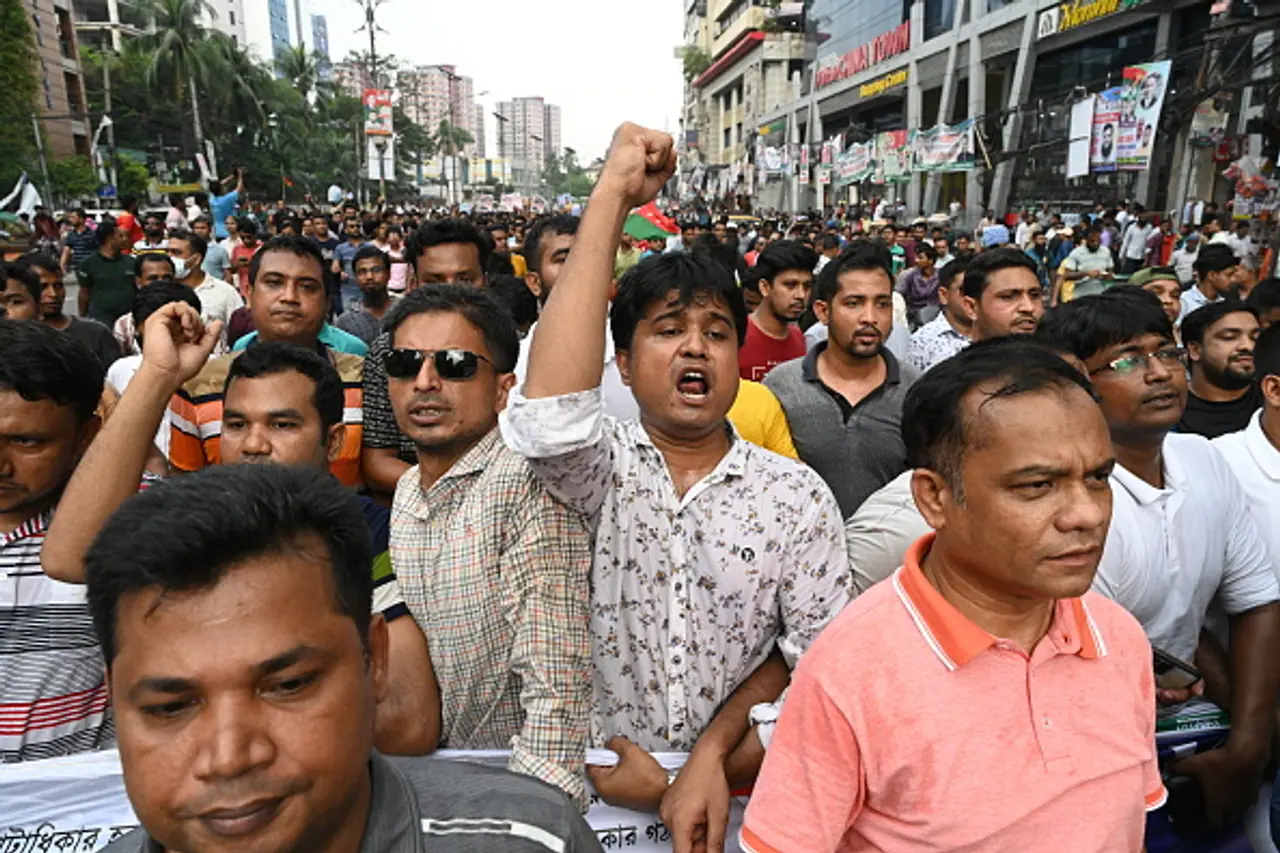Post-Hasina Bangladesh debates new name: What's on the table?
The growing influence of fundamentalist groups, coupled with increasing authoritarianism, has raised alarm both within the country and across its borders.

Following Sheikh Hasina's exit from power, Bangladesh is witnessing significant changes in its political and social landscape. The growing influence of fundamentalist groups, coupled with increasing authoritarianism, has raised alarm both within the country and across its borders. Some extremist organizations in Bangladesh have even issued provocative threats to occupy Kolkata and Agartala, allegedly with backing from certain Bangladeshi political parties.

Debates over renaming Bangladesh
In this volatile environment, a controversial discussion about changing Bangladesh's name has sparked widespread debate. The move is seen as part of an effort to erase the legacy of Sheikh Mujibur Rahman, the country's founding father, and his family. The interim government, led by Nobel Laureate Muhammad Yunus, has assumed administrative control, with many citizens referring to this transition as a "second liberation." However, the proposed name change has divided opinion within the nation.
Leaders from various organizations have floated suggestions for a new name. Ashraf Ali Akanda of Islami Andolan Bangladesh proposed the name "Bangladesh Kalyan Rashtra" (Bangladesh Welfare State). He argued that incorporating the word "Kalyan" (welfare) would symbolize a commitment to the nation's well-being and discourage harmful intentions. Meanwhile, Rashed Khan, General Secretary of the Gonodhikar Parishad, suggested "Ganatantrik Bangladesh" (Democratic Bangladesh). He called for replacing "Ganaprajatantri" (People's Republic) with "Ganatantrik" (Democratic) in the constitution and removing references to "Prajatantra" (Republic).
Divisions among organizations
This divergence in opinion has surprised many, exposing ideological rifts within Bangladesh's political and social frameworks. The debates have heightened tensions, with some organizations staunchly defending their preferred name and vision for the country. The discourse reflects a broader struggle over Bangladesh's identity in a post-Hasina era, where efforts to redefine its character are clashing with historical and political legacies.
Hasina's perspective on the state of Bangladesh
Adding to the ongoing turmoil, Sheikh Hasina, while virtually addressing an Awami League meeting in London, expressed concerns about the state of governance in Bangladesh. She noted the absence of the rule of law, a statement made in a broader context but resonant with the current situation.
Check the Breaking News Today and Latest News from across India and around the world. Stay updated with the latest World News and global developments from politics to economy and current affairs. Get in-depth coverage of China News, Europe News, Pakistan News, and South Asia News, along with top headlines from the UK and US. Follow expert analysis, international trends, and breaking updates from around the globe. Download the Asianet News Official App for reliable global news coverage anytime, anywhere.